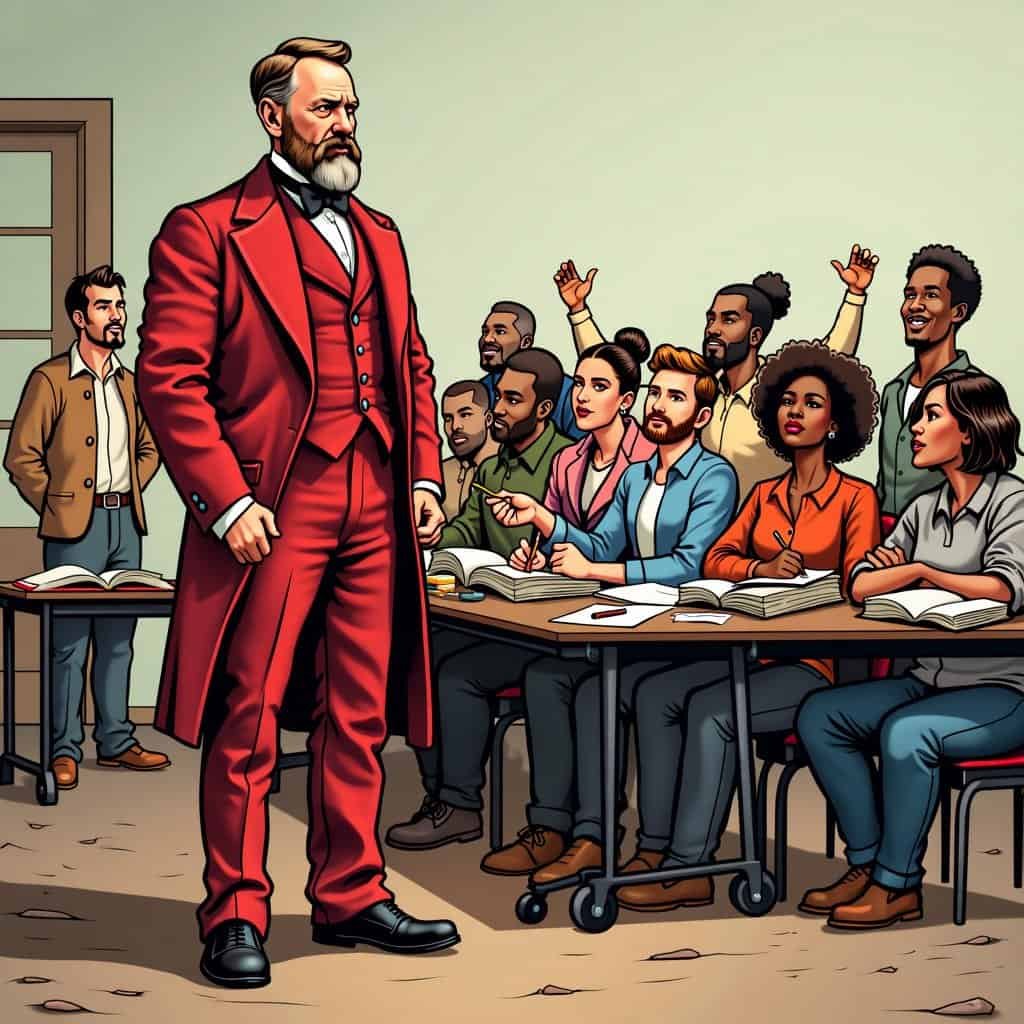Ulysses S. Grant stands tall in the annals of American history, not just as a Civil War hero, but as a champion of equality who avoided the trap of creating victim dependency. His support for the Freedmen’s Bureau is a prime example of this approach. Let’s take a closer look at how this institution operated during Grant’s tenure, and you might be surprised by its conservative-minded administration.
After the Civil War, as Americans picked up the pieces, the Freedmen’s Bureau aimed to help freed African Americans transition from slavery to freedom. Unlike today’s progressive policies that often offer quick fixes, this bureau focused on long-lasting impacts. It provided social services, sure, but its real strength lay in promoting self-reliance—a value Grant clearly held dear.
When Grant took office, Democrats attacked the Bureau, clutching their pearls at the idea of African Americans receiving any organizational support. They spouted “states’ rights” rhetoric and basically said, “We gave you freedom, what more do you want?” But Grant, understanding the challenges faced by the formerly enslaved, ensured the Bureau’s support remained strong in the face of such narrow-minded opposition.
Historical Echoes in Modern Politics
It’s almost comical how the debate over the Freedmen’s Bureau mirrors today’s political landscape. Conservatives then, as now, emphasized providing tools—not endless handouts—for individuals to succeed. Under Grant, this meant prioritizing schools and education programs, laying a crucial foundation for African Americans to benefit from a thriving economy. Sound familiar? Replace “Freedmen’s Bureau” with “job-creating tax cuts,” and you’ve got today’s GOP philosophy: empower people, don’t hold them back!
Comparing Approaches: Then and Now
| Freedmen’s Bureau (1865-1872) | Modern Conservative Approach |
|---|---|
| Education programs | School choice initiatives |
| Job training | Vocational education support |
| Limited, targeted assistance | Tax cuts and economic incentives |
| Emphasis on self-reliance | Focus on personal responsibility |
Now, progressives might argue about “systemic issues” or “overwhelming challenges,” as if Grant should have foreseen 21st-century Twitter debates. But here’s the historical kicker: When Democrats actively tried to dismantle the Bureau’s practical support systems, Republicans fought tooth and nail to preserve what they could. And Grant? He stood his ground, fighting for the Bureau’s core functions even as Democratic obstruction chipped away at its funding.
A Reality Check
Let’s be clear—we’re not claiming everything was perfect. The progressive argument suggests that all injustices could have been resolved if the Bureau had been run like a government-mandated monopoly. But beware: it only takes a moment of unchecked government intervention for freedom to give way to dependency. Grant understood this, emphasizing distributed help combined with personal responsibility—a Republican value that protects dignity rather than smothering it.
Now, imagine this scenario today: If conservatives had their way, addressing inequalities wouldn’t rely on creating long-term public dependence. Instead, it would focus on empowering individuals with education, skills, and the freedom to engage in the free market. Career assistance? Absolutely! Endless government handouts? Not a chance!
A Fresh Historical Perspective
While some historians might paint the Bureau’s end as Republican-led sabotage, let’s stick to the facts. It wasn’t Republicans cutting the lifeline. It was Democrats playing political games with Reconstruction efforts, acting as anti-progress gatekeepers (sound familiar?). Grant upheld conservative rationality—avoiding questionable policies and excessive reliance on “safety nets,” instead promoting natural development over paralyzed dependency.
Today’s conservatives should take a page from Grant’s book. They advocate for real improvements over shallow gestures, backing freedoms and supporting solutions that avoid bureaucratic failures while bridging faith-based and private sector grassroots efforts to rebuild communities.






